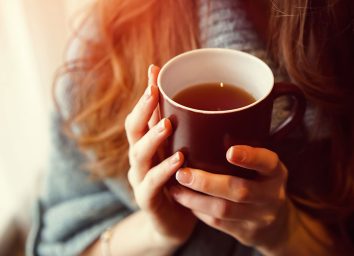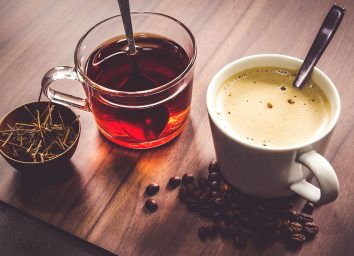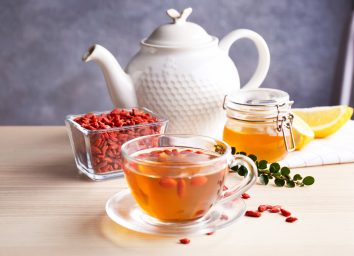22 Best Teas You Should Drink for Weight Loss
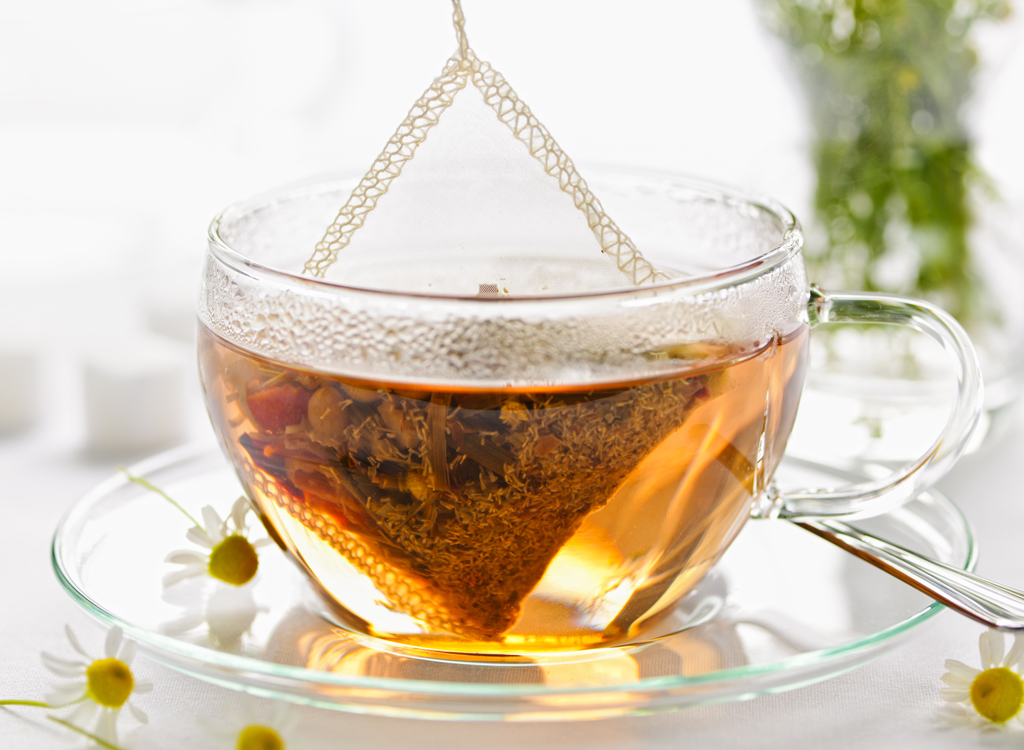
For most Americans, tea is tea. Forget black teas, white teas, greens, and reds; tea is that finely ground gunpowder that comes in bags from Lipton, or that over-sweetened sludge sloshed into plastic bottles and sold in between the Coke and the Mountain Dew.
However, in places like Japan, the UK, and large swaths of Southeast Asia, tea leaves are as diverse and nuanced as wine grapes. Not only does the flavor profile change dramatically between one tea variety and the next, but so do the health benefits. Not only can certain brews fight off various diseases, select teas have also been shown to rev the metabolism, quell hunger, slash waist-widening stress, and shrink fat cells when you drink tea every day. When Taiwanese researchers studied more than 1,100 people over a 10-year period, they determined that those who drank tea had 19.6 percent less body fat than those who drank none!
To ensure you brew the best cups for your weight loss goals, we've rounded up the most potent waist-whittling teas from around the world. Read on to find out what they are—and to get the most out of every cup, pick up a copy of the best-selling 7-Day Flat-Belly Tea Cleanse!
Green Tea
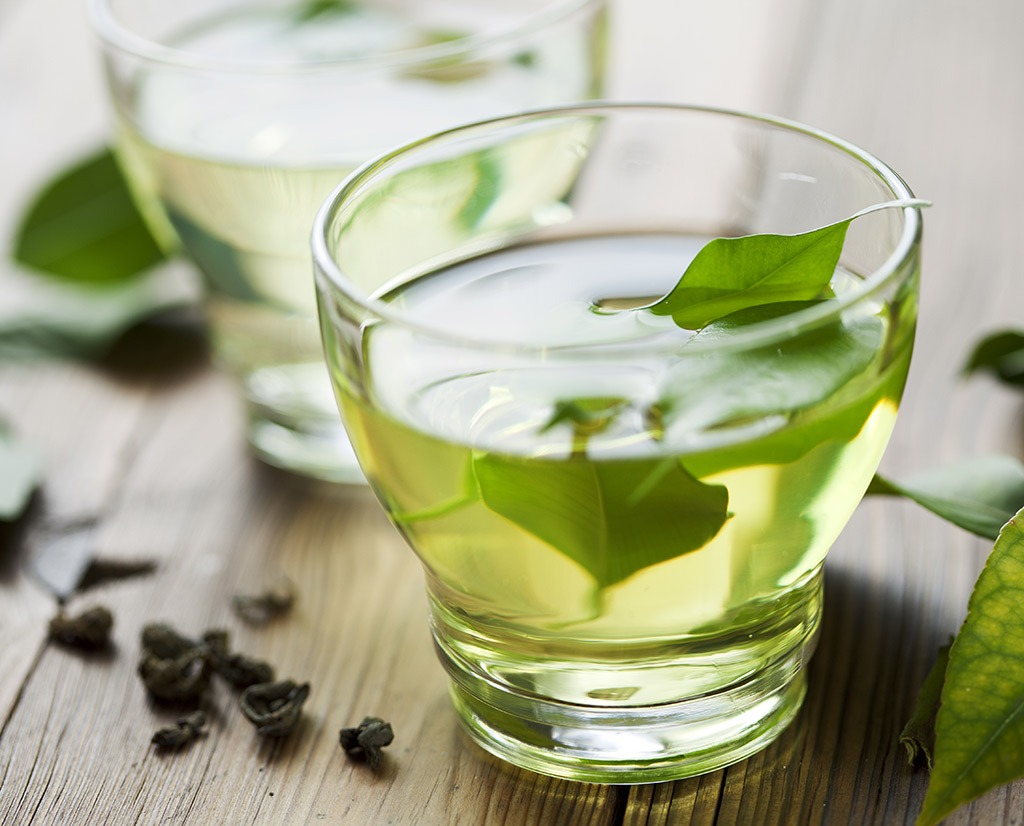
Get this: Green tea literally blasts away flab! Researchers attribute the fat-burning properties of green tea to catechins, specifically EGCG — the name of a group of antioxidative compounds that blast adipose tissue by revving the metabolism, increasing the release of fat from fat cells (particularly in the belly), and then speeding up the liver's fat burning capacity. It gets better: Research suggests that combining regular green-tea drinking with exercise may maximize the weight loss benefits. In one study, participants who combined a daily habit of 4-5 cups of green tea with a 25-minute workout lost 2 more pounds than the non-tea-drinking exercisers. To reap even more flat-belly benefits from your fitness routine, be sure you're incorporating these best weight loss exercises.
STAY INFORMED: Sign up for our newsletter to get the latest food news delivered straight to your inbox.
Lemon Tea
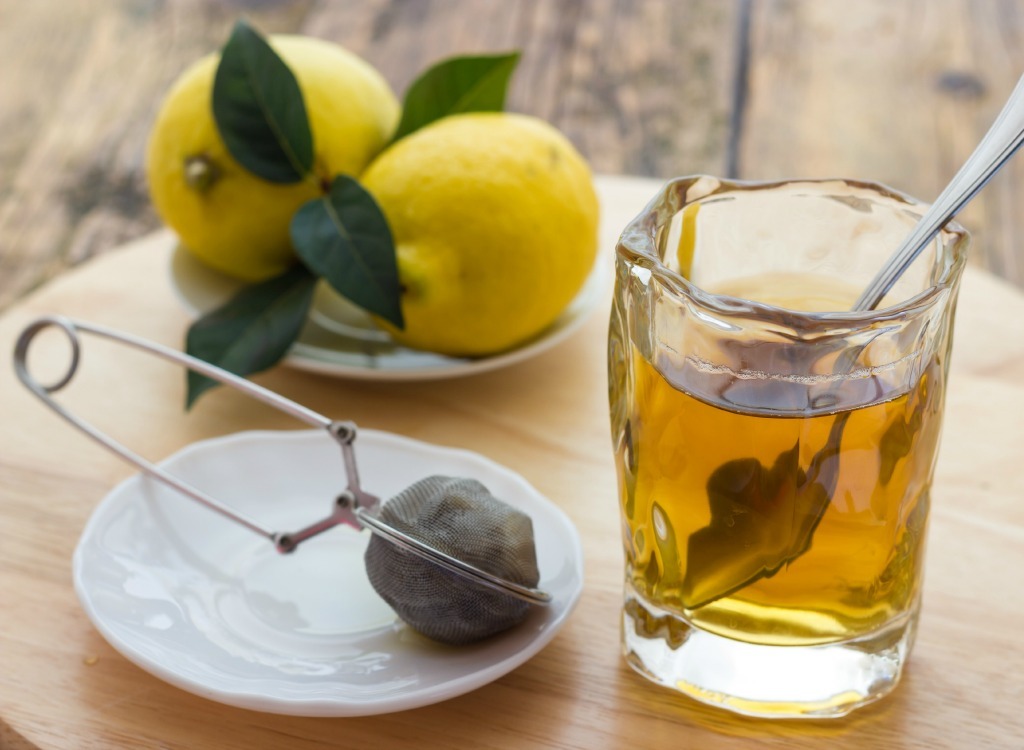
Whether salty foods or alcohol are to blame for your blimp-like belly, lemon tea can help fight the bloat thanks to its d-limonene content. The compound, which is found in citrus rind oil, has been used for its diuretic effects since ancient times. But until recently, there were no scientific findings to back the claims. An animal study published in the European Journal of Pharmacology found D-Limonene has a therapeutic effect on metabolic disorders in mice with high-fat-diet-induced obesity.
For more ways to deflate your belly, add these foods that beat bloat to your diet!
White Tea
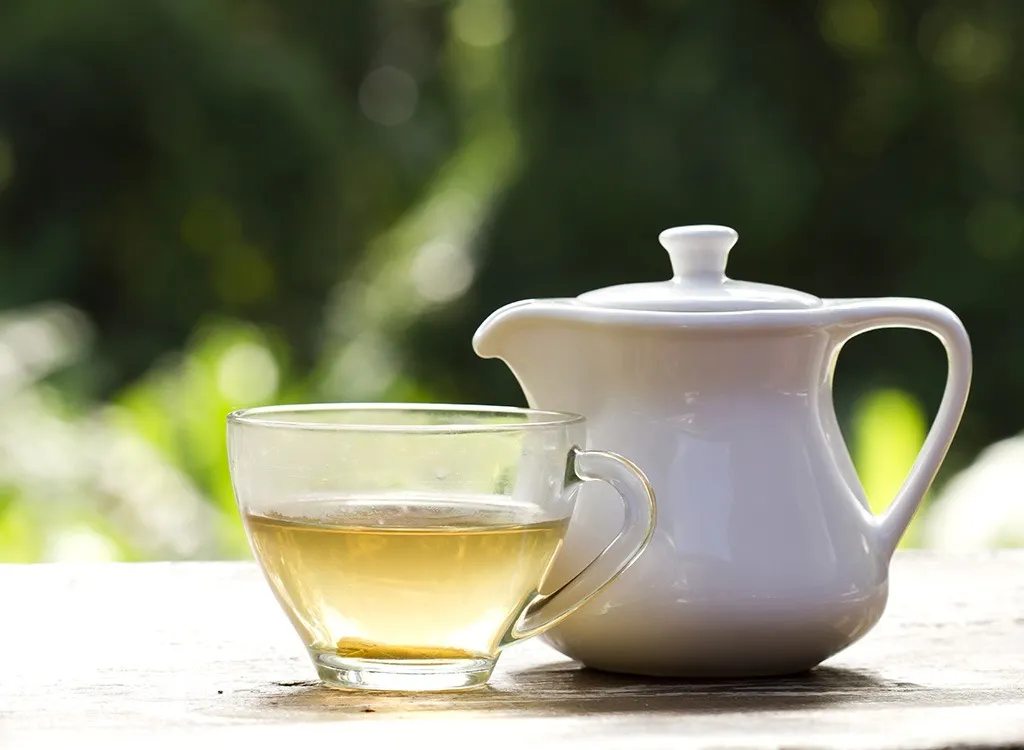
Not only does white tea prevent new fat cells from forming, but it also enhances the body's ability to break down and utilize existing fat for energy, according to a study published in the journal Nutrition and Metabolism. As if that wasn't enough, "Chemicals in the tea appear to protect your skin from sun-induced stress, which can cause the cells to break down and age prematurely," says Elma Baron, MD, the study author. To put white tea to use, try rubbing on a lotion containing white tea extract before you apply your sunblock!
Black Tea

Italian researchers found that drinking a cup of black tea per day improves cardiovascular function—and the more cups you drink, the more you benefit! Better cardiovascular function means you can breeze through that 5K you signed up for. And a study published in the Proceedings of the National Academy of Sciences revealed that drinking 20 ounces of black tea daily causes the body to secrete five times more interferon, a key element of your body's infection-protection arsenal. Just make sure to ditch the dairy. A study in the European Heart Journal found that while black tea can improve blood flow and blood vessel dilation, adding milk to the tea counteracts these effects.
Valerian Tea

Sleep's a big deal. Losing a mere hour of shut-eye over the course of three days is enough to negatively impact the body's hunger and appetite-regulating hormone, ghrelin. Quality sleep, on the other hand, fuels the production of fat-burning hormones, making it a top priority if you're trying to drop a few pounds. Valerian is an herb that's long been valued as a mild sedative, and now research is showing what tea enthusiasts have known for centuries. In a study of women, researchers gave half the test subjects a valerian extract and half a placebo. Thirty percent of those who received valerian reported an improvement in the quality of their sleep, versus just 4 percent of the control group. Sleep deprived? Here's Your One Day-Plan for Better Sleep.
Ashwagandha Tea
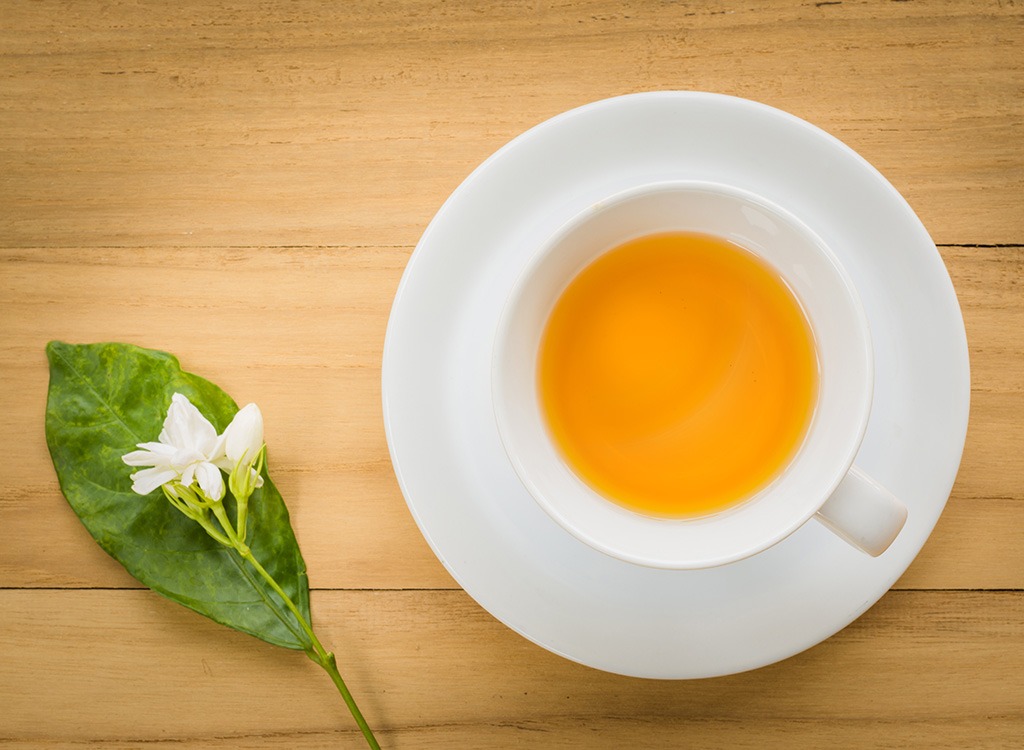
Ashwagandha tea gives you a better outlook on life and reduces stress hormones that can wreak havoc on your waistline. A study published in the Indian Journal of Psychological Medicine found that "Ashwagandha root extract safely and effectively improves an individual's resistance towards stress and thereby improves self-assessed quality of life." When it comes to weight loss, stress is not your friend. A recent study at Penn State found that people who react badly to stressful situations have increased levels of inflammation in their bodies—and inflammation is directly tied to obesity, as well as diseases like diabetes, heart disease and cancer. When anxiety rides high, you're also at the mercy of stress hormones such as cortisol—known as "the belly fat hormone" for its ability to pull lipids from the bloodstream and store them in our fat cells.
Oolong Tea
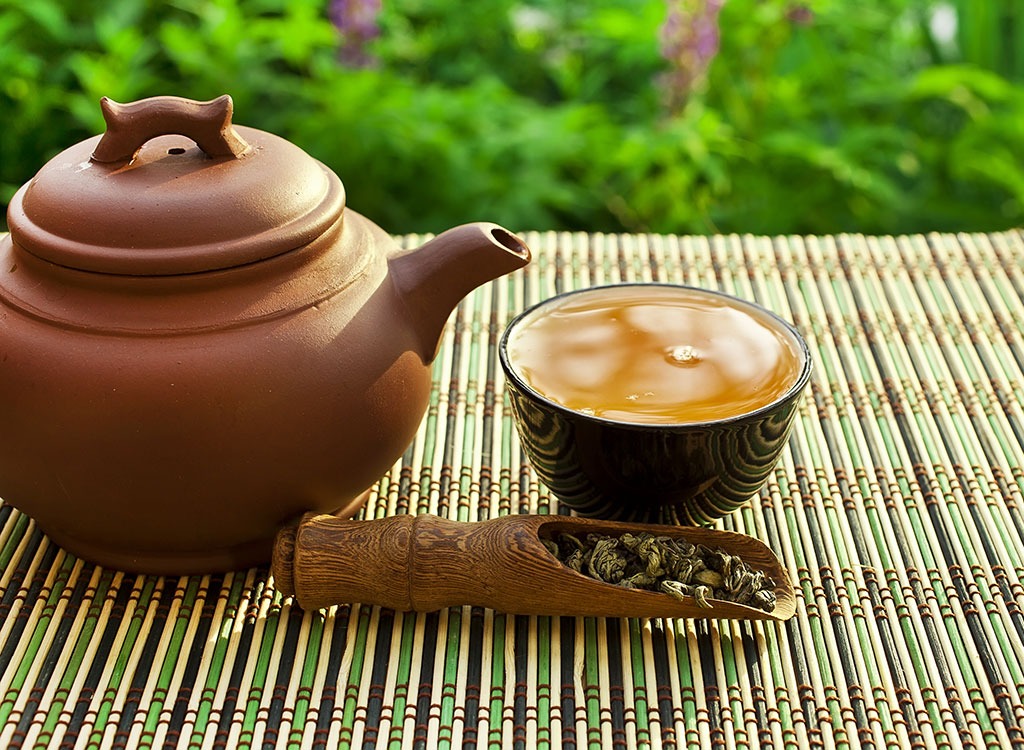
Oolong tea's major weapon against weight gain is its ability to prevent fat absorption. Japanese scientists found that high levels of antioxidants called polymerized polyphenols, specific to oolong tea, inhibit the body's ability to absorb fat by up to 20 percent. When Taiwanese researchers studied more than 1,100 people over a 10-year period, they determined that those who drank black, green or oolong tea one or more times a week had nearly 20 percent less body fat than those who drank none. And oolong tea fights blood pressure, cutting the risk by as much as a whopping 65 percent!
Bilberry Tea
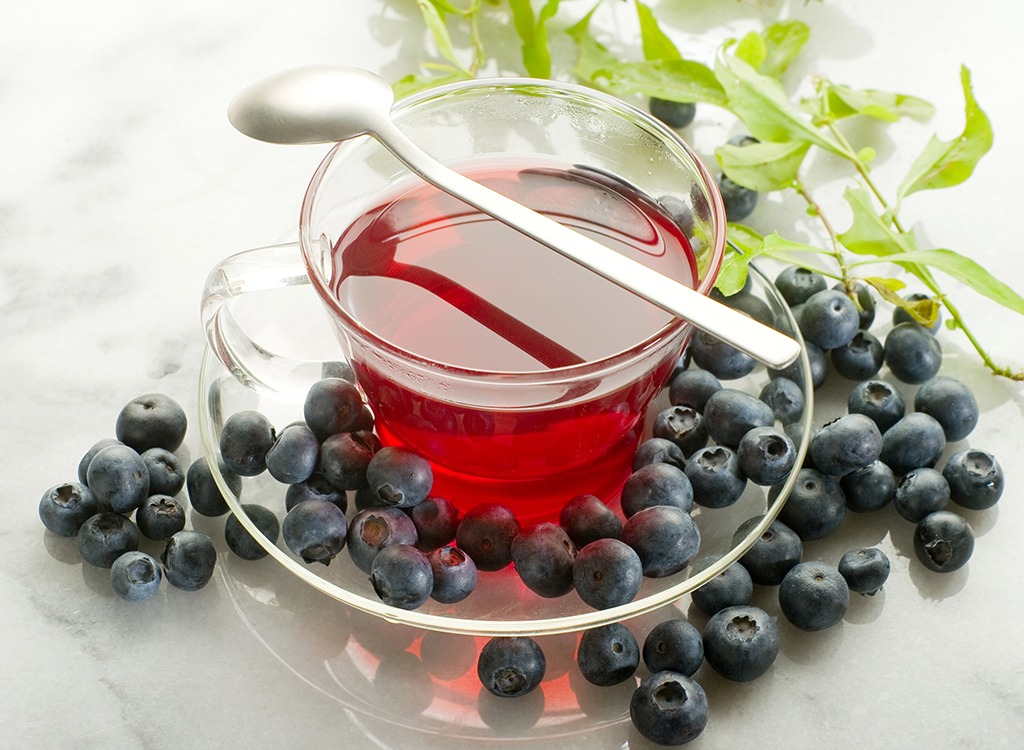
Consuming bilberries, a northern European cousin to the blueberry, may help reduce bloat-inducing inflammation, according to a study published in the journal Molecular Nutrition & Food Research. To come to these findings, researchers divided participants into two groups; one group was given a diet that included an equivalent of 1.5 cups of blueberries, while the other group followed a control diet that didn't include the fruit. At the end of the experiment, the bilberry-eating group had significantly less inflammation than their counterparts who didn't munch on the berry. Since the fruit is native to Northern Europe, it isn't widely available in the US. To reap the benefits, enjoy a few cups of bilberry tea.
Red Tea
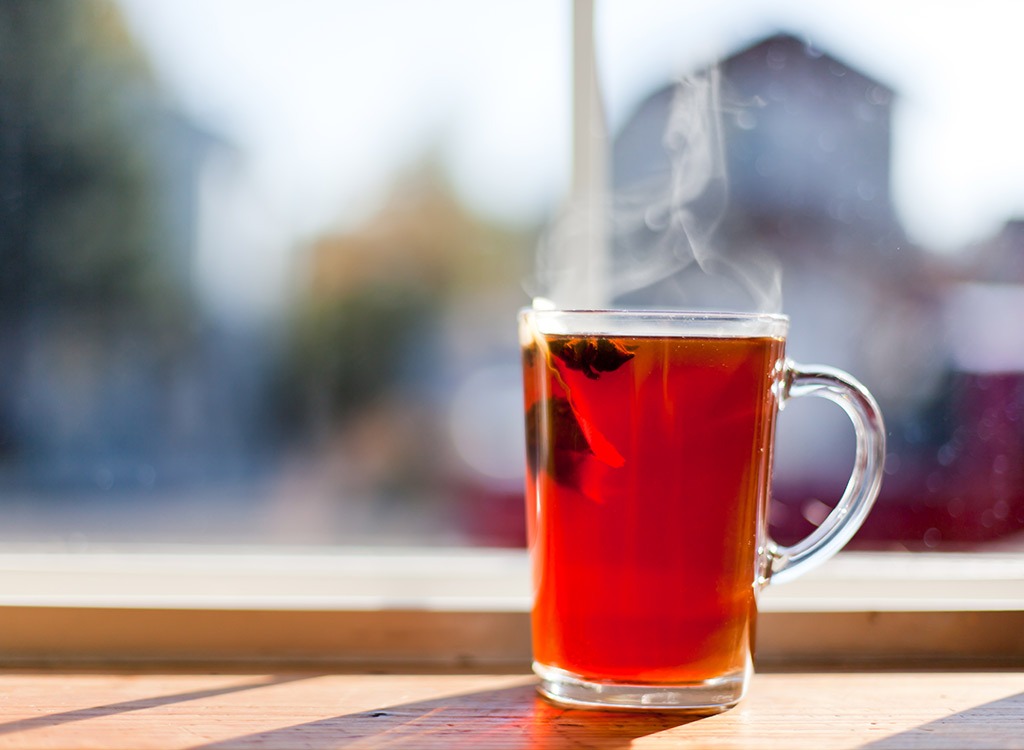
Rooibos tea is made from the leaves of the "red bush" plant, grown exclusively in the small Cederberg region of South Africa, near Cape Town. What makes rooibos tea particularly good for your belly is a unique and powerful flavonoid called Aspalathin. According to South African researchers, polyphenols and flavonoids found in the plant inhibit adipogenesis–the formation of new fat cells–by as much as 22 percent. The chemicals also help aid fat metabolism. Plus, Rooibos is naturally sweet, so you won't need to add sugar. It's also not technically a tea—it's an herbal infusion. Want to give your metabolism a kick? Check out these 6 Ways to Boost your Metabolism.
Mate
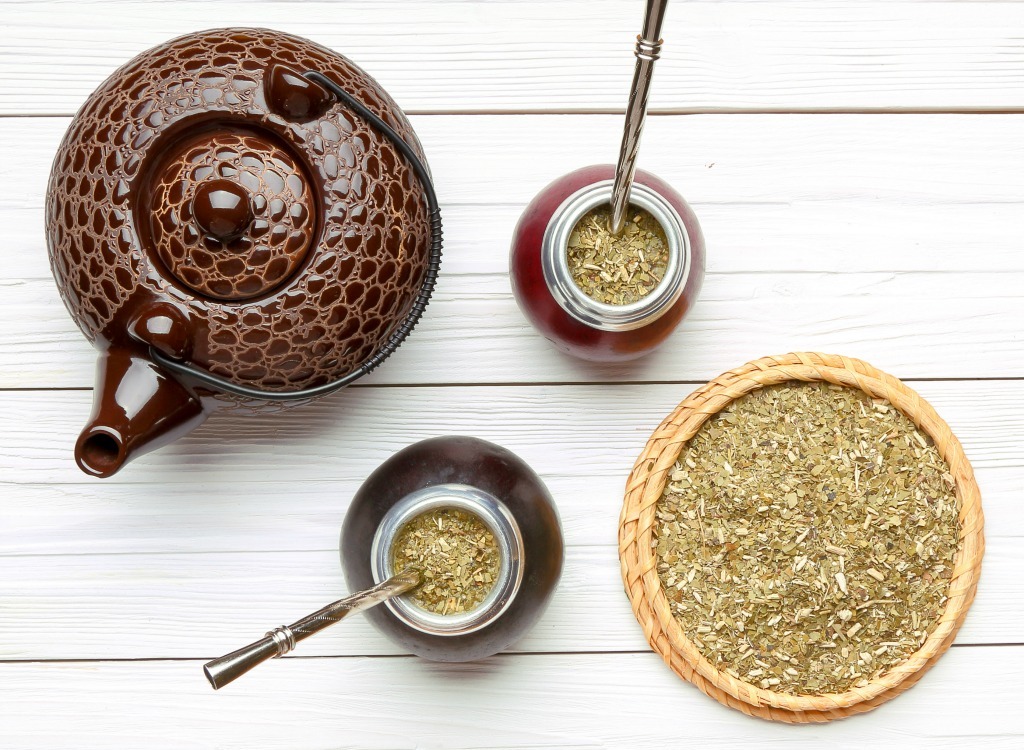
Mate tea is known for its powerful thermogenic effects—meaning it turns up your body's calorie burning mechanism—and can also promote weight loss by improving insulin sensitivity. In a recent study, participants were divided into two groups. One group took a placebo 60 minutes prior to exercising, while the other group ingested 1000 mg capsule of yerba maté. Researchers found that those who consumed the herb increased the beneficial effects their workout had on their metabolism without the workout. Plus, this brew is like green tea on steroids, with up to 90 percent more powerful cancer-fighting antioxidants, a cache of B vitamins, and plenty of chromium, which helps stabilize blood-sugar levels.
Mint Tea
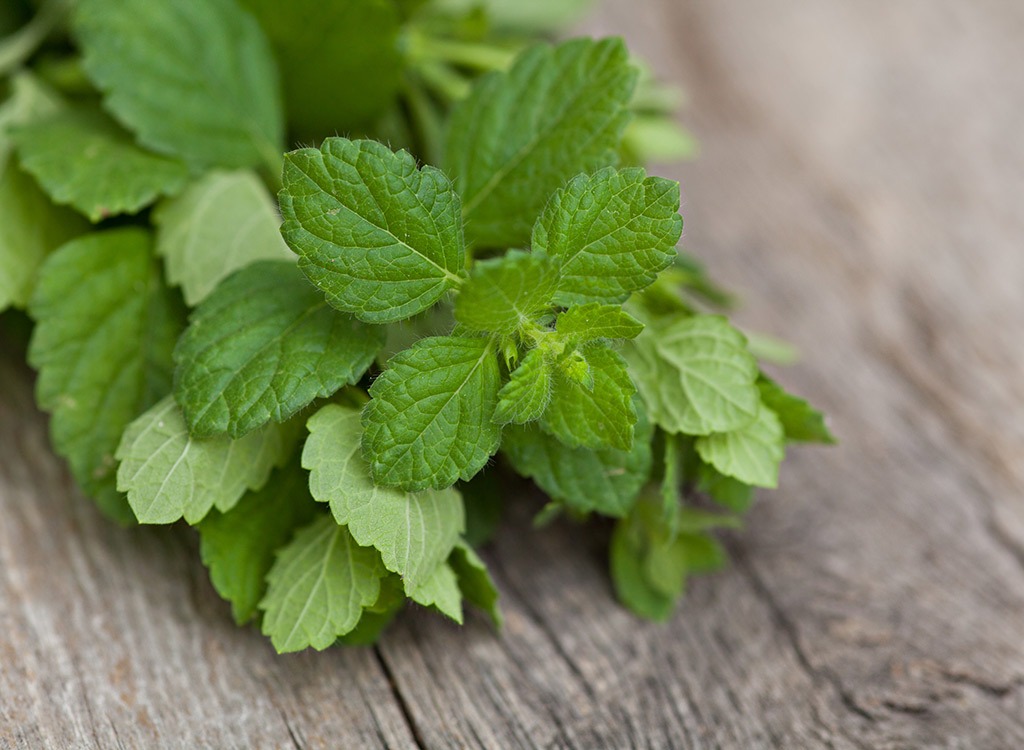
Mint tea wards off the munchies. Fill a big teacup with soothing peppermint tea and sniff yourself skinny! While certain scents can trigger hunger (a trick Cinnabon figured out long ago), others can actually suppress your appetite. One study published in the Journal of Neurological and Orthopaedic Medicine found that people who sniffed peppermint every two hours lost an average of 5 pounds a month. Although tea is relatively low in caffeine—about 25% of what a cup of coffee delivers—decaffeinated varieties are great to have on hand for a soothing bedtime treat that will keep you out of the cabinets! And speaking of sleep, want to lose weight while you snooze? These ways to lose weight in your sleep can help.
Chamomile & Lavender Tea

Chamomile-and-lavender tea wards off fatigue and depression by reducing the stress that comes with insomnia. And reduced stress prevents increased levels of inflammation, which have been directly tied to weight and blood sugar disorders like obesity and diabetes. One Taiwanese study found that chamomile tea significantly improved the physical symptoms related to a lack of sleep, and even helped reduced levels of depression in the chronically sleep-deprived. Another study found that it improved daytime wakefulness in people who suffered from a lack of sleep. Here's the funny thing about chamomile: Although it's the most popular tea for bedtime, there's actually no evidence that it improves the length or quality of sleep.
Goji Tea
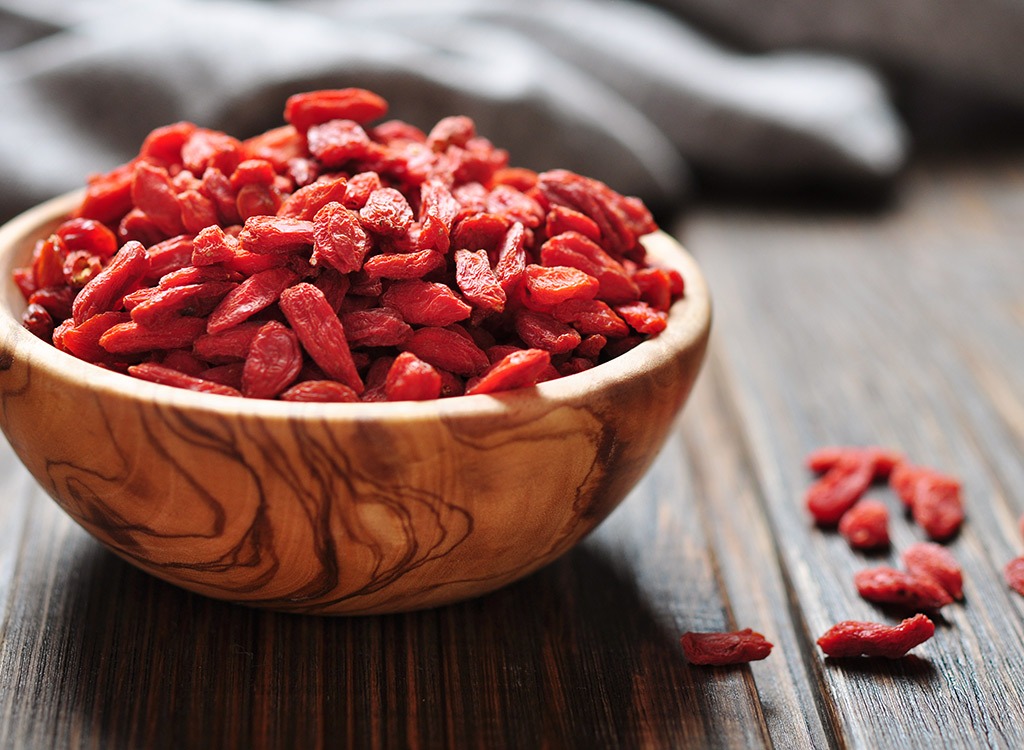
Goji tea cranks up calorie burn by 10%. Lycium barbarum, the plant from which gojis are harvested, is a traditional Asian medicinal therapy for diabetes, but it also boasts a slimming effect. In a study published in the Journal of the American College of Nutrition, participants were either given a single dose of L. barbarum or a placebo after a meal. The researchers found that one hour after the dose, the goji group was burning calories at a rate 10 percent higher than the placebo group. The effects lasted up to four hours! Most goji teas are mixed with green tea, further boosting your calorie burn.
Ginger Tea
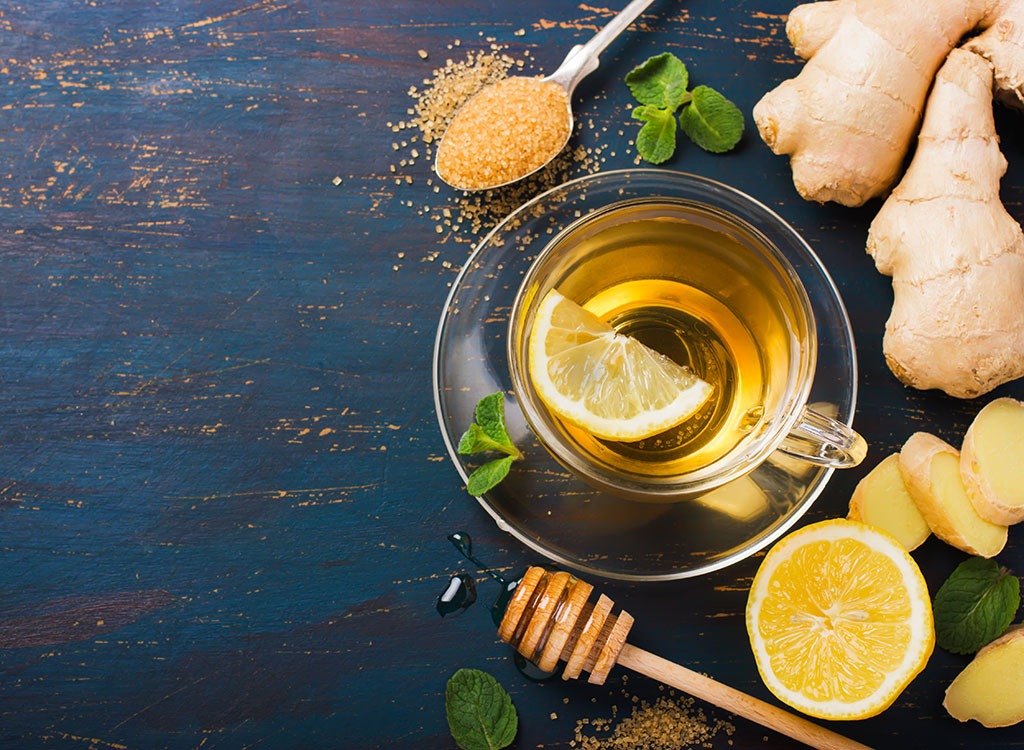
Not only is ginger one of the healthiest spices on the planet, but it also fights inflammation. According to numerous studies, ginger, traditionally used to ease stomach pain, blocks several genes and enzymes in the body that promote bloat-causing inflammation. This means you can enjoy that second serving of nutrient-dense veggies without worry. If you prefer the taste of chai tea, typically made from a blend of cinnamon, cardamom, cloves and ginger, that may also do the trick—but may be less potent.
Barberry
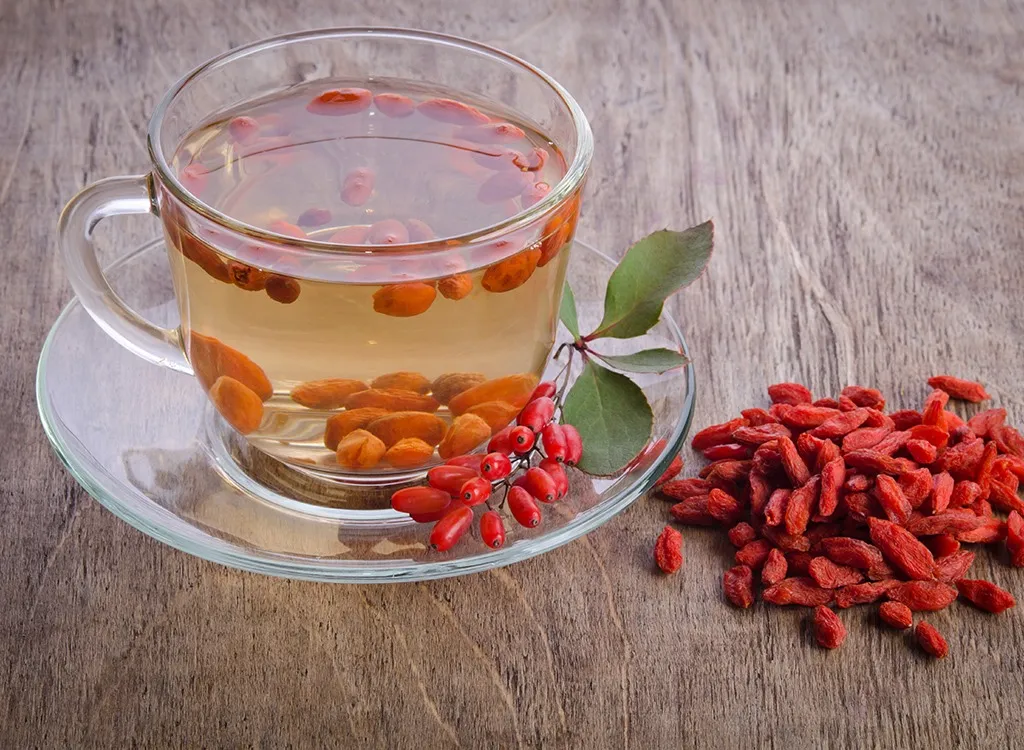
This tea is a weight-loss ninja. The stem, fruit and root bark of the barberry shrub contains berberine–a powerful, naturally occurring, fat-frying chemical. A study conducted by Chinese researchers revealed that taking berberine supplements three times a day over the course of three months can decrease your body mass index (BMI): participants dropped their BMI levels from 31.5 to 27.4. Previous studies have also found that consuming the plant can boost energy expenditure and help decrease the number of receptors on the surface of fat cells, making them less apt to absorb incoming sources of flubber. For more weight loss foods, check out these best foods for rapid weight loss.
Kava Kava

Kava Kava quells worrying thoughts. In one Phytotherapy Research study, 120 mg of kava-kava was administered daily over 6 weeks to patients who had stress-induced insomnia. The results suggested a statistically significant improvement in sleep latency, duration and waking mood. When you're anxious, your body feels like it's under a tremendous amount of stress all the time. This is why anxiety is a powerful trigger for weight gain. A recent study in the journal European Eating Disorder Review placed anxiety as "one of the most important factors significantly associated with weight gain." In fact, two-thirds of people with eating disorders also suffer from anxiety, and the anxiety usually existed first. But sip with caution—at very high levels, kava kava can cause liver toxicity. Kava Kava should only be one part of an overall, balanced tea cleanse. Click here to find ways to cope with Emotions That Lead to Overeating and Weight Gain.
Pu-erh Tea
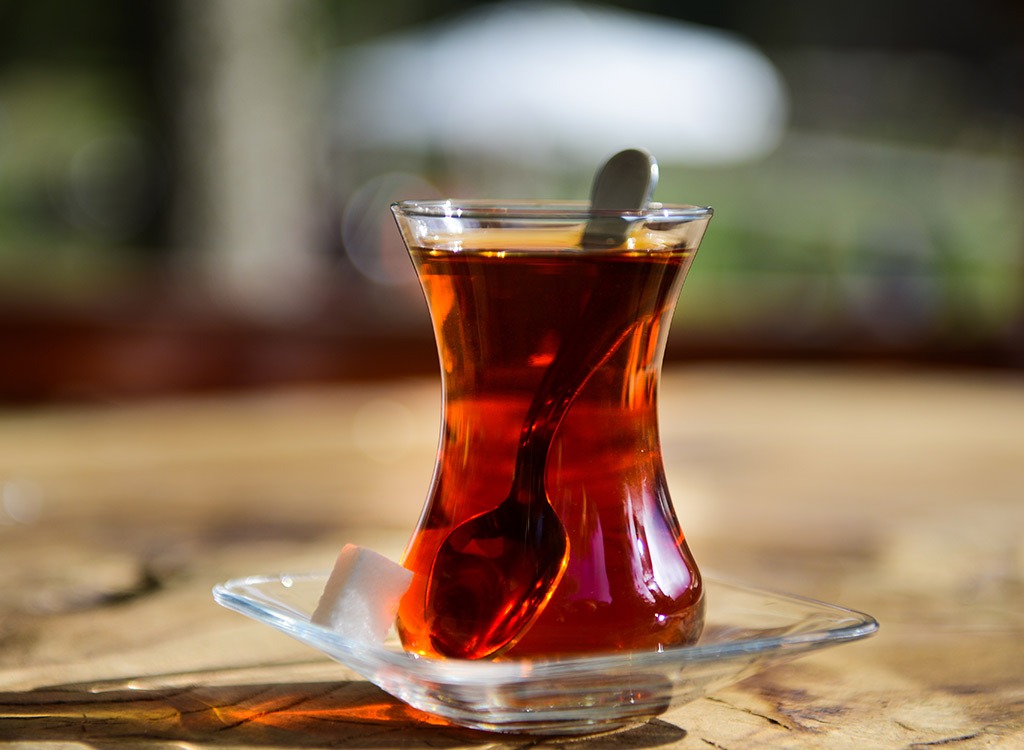
This fermented Chinese tea can literally shrink the size of your fat cells! To discover the brew's fat-crusading powers Chinese researchers divided rats into five groups and fed them varying diets over a two month period. In addition to a control group, there was a group given a high-fat diet with no tea supplementation and three additional groups that were fed a high-fat diet with varying doses of pu-erh tea extract. The researchers found that the tea significantly lowered triglyceride concentrations (potentially dangerous fat found in the blood) and belly fat in the high-fat diet groups. Although sipping the tea could have slightly different outcomes in humans, we think these findings are promising enough that it's still well worth your while to fix yourself a steaming hot cup.
Fennel Tea
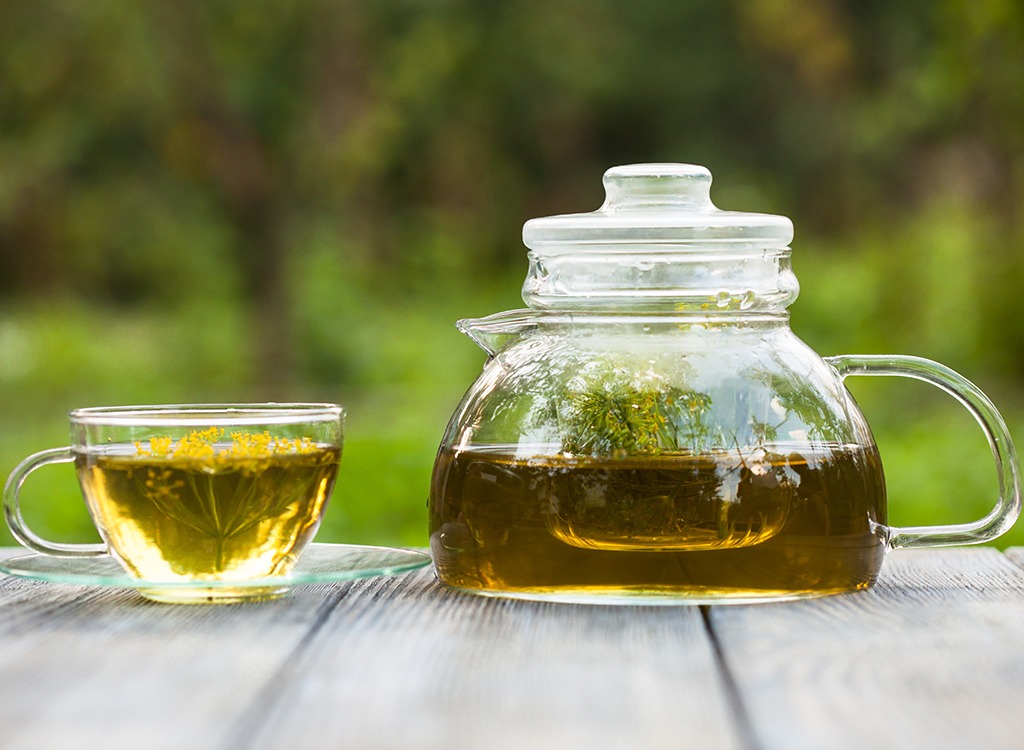
According to a 2015 Journal of Food Biochemistry study, foeniculum vulgare–better known as fennel–has major inflammation-fighting properties. Fans of the mild, sweet licorice-flavored tea have long used it to treat gas and other gastrointestinal issues, too. While the U.S. National Institutes of Health has no stance on fennel's medicinal effectiveness, Germany's Commission E, an official government agency similar to the FDA that focuses on herbs, says that the plant can indeed be an effective flatulence fighter.
Kola Nut Tea
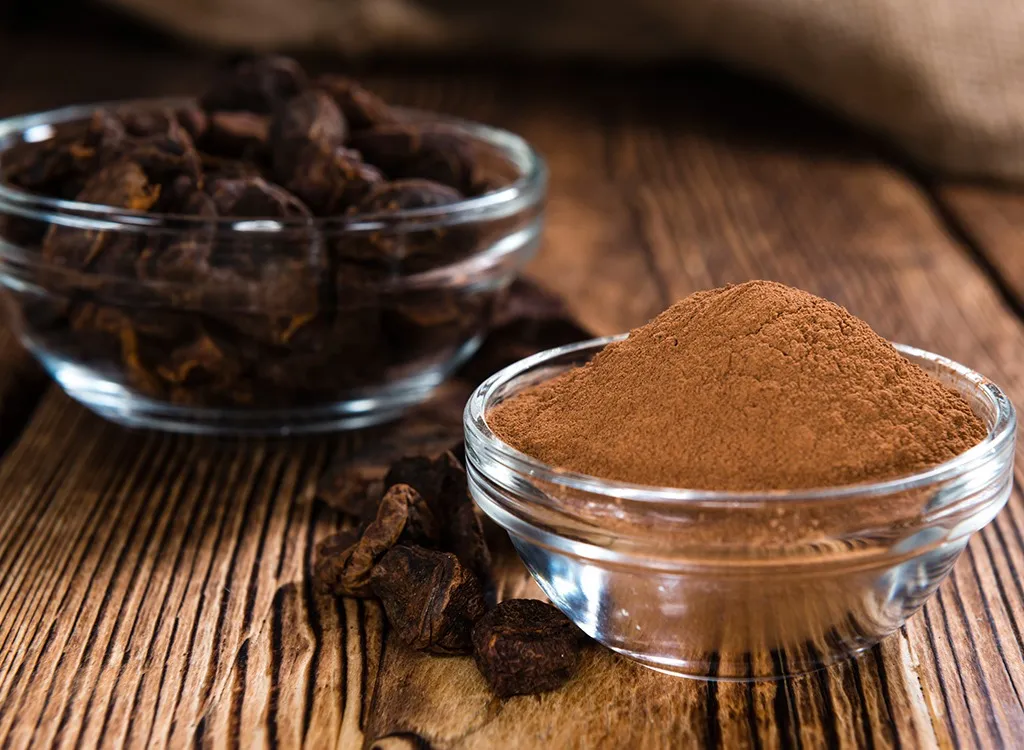
With a caffeine count higher than coffee, these teas kick your metabolism into gear. In a study published in the journal Physiology & Behavior, a 3-4 percent increase in metabolic rate was measured in both lean and obese subjects after a single 100 mg dose of caffeine. Look for teas made from this caffeine-containing fruit; if you want to skip comparative shopping, just grab a box of Celestial Seasonings' Fast Lane, which clocks in 20 mg above your daily cup of coffee at 110 mg caffeine.
Hops Tea
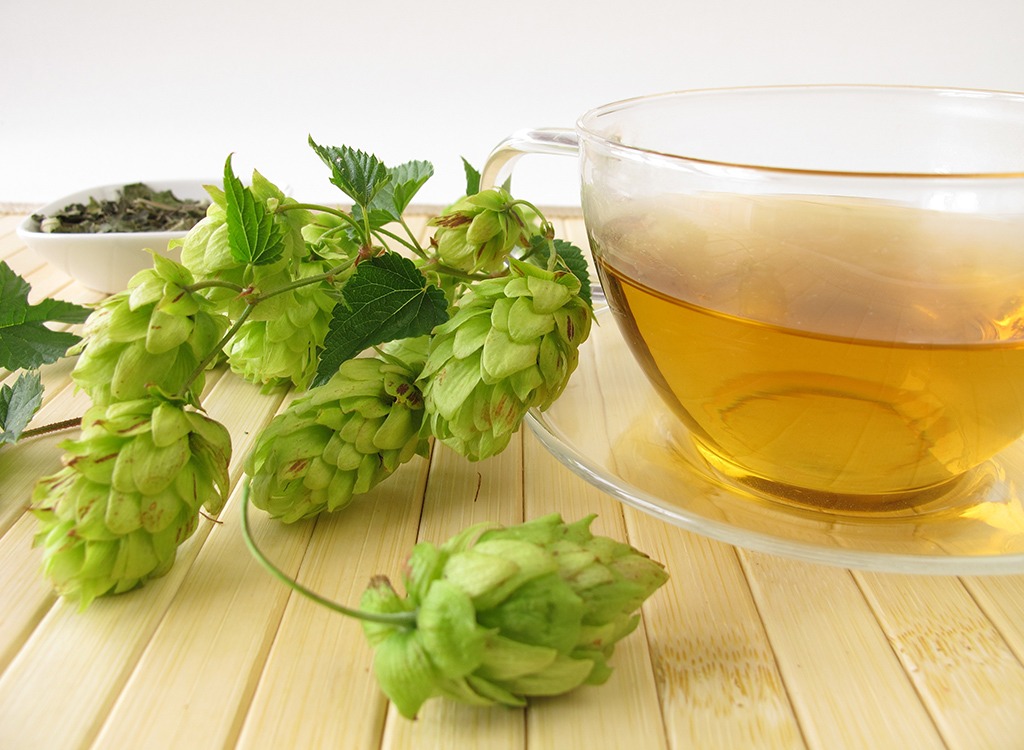
Sip and soothe the central nervous system with this tea. The hop, a component in beer, is a sedative plant whose pharmacological activity is due primarily to the bitter resins in its leaves. Hops increase the activity of the neurotransmitter GABA, which helps combat anxiety. New research suggests simple food choices can make the difference between feeling anxious and feeling calm and in control — and that's a big deal. Eighteen percent of the population suffers some form of anxiety disorder, and experts say everyday worry can quickly snowball into a crippling condition if it's not dealt with swiftly. And it all begins in the kitchen. Anxious? Avoid these Foods That Make Anxiety Worse.
Hibiscus Tea
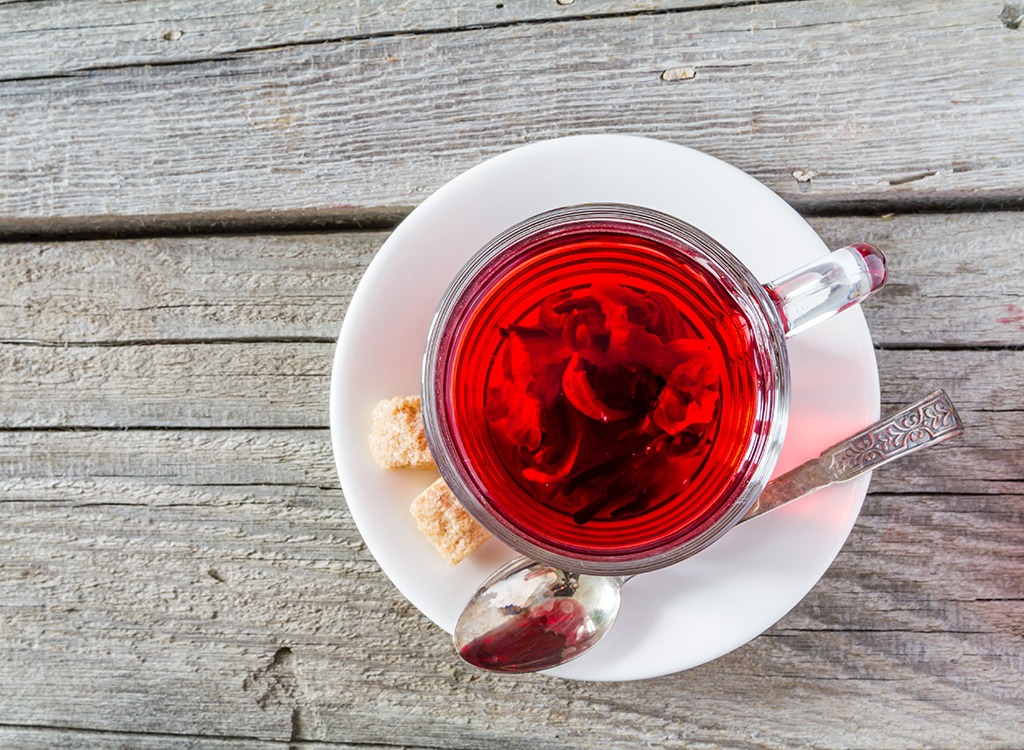
The pressure, the puffy stomach, the self-consciousness—this tea can help you ditch all of it. According to numerous studies, flavonoids and other compounds found in the hibiscus plant help to counteract bloating by influencing how aldosterone, the hormone that regulates water and electrolytes balance, affects the body. Enjoy a cup of hibiscus tea and watch your pooch slowly–but surely–deflate.
Matcha
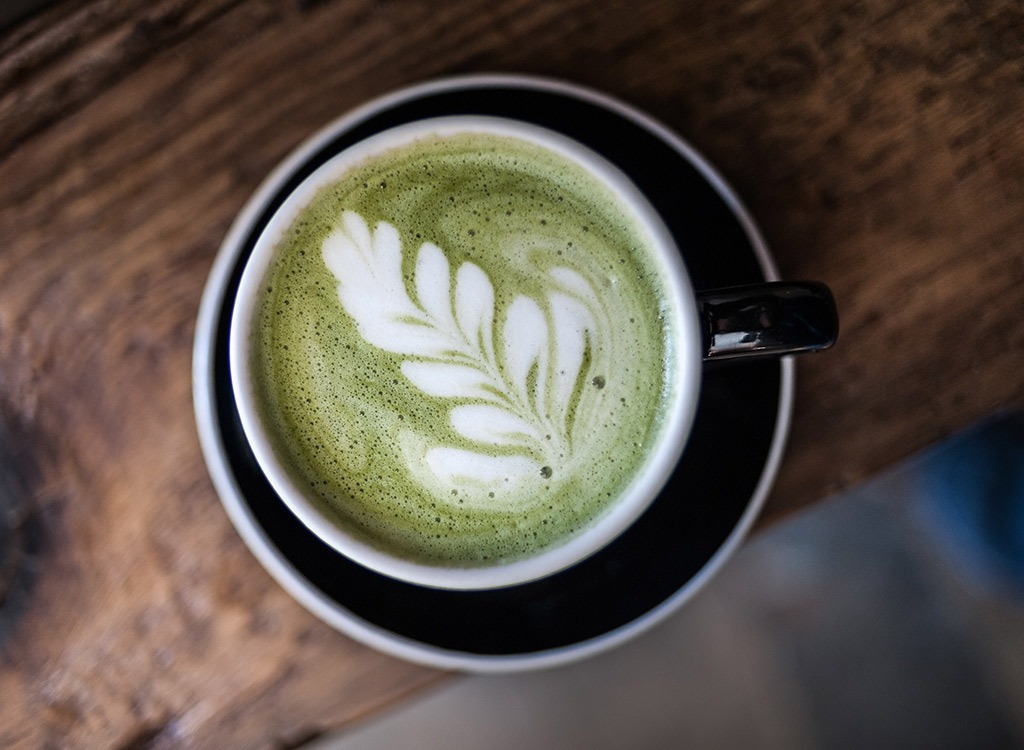
Derived from the Japanese tencha leaf and then stone ground into a bright-green fine powder, matcha literally means "powdered tea," and it's incredibly good for you. Research shows the concentration of epigallocatechin gallate (EGCG) in matcha to be 137 times greater than the amount you'll find in most store-bought green tea. EGCG is a dieter's best friend: studies have shown the compound can simultaneously boost lipolysis (the breakdown of fat) and block adipogenesis (the formation of fat cells) particularly in the belly. One study found men who drank green tea containing 136 mg EGCG—what you'll find in a single 4 gram serving of matcha—lost twice as much weight than a placebo group (-5.3 vs -2.8 lbs), and four times as much visceral (belly) fat over the course of 3 months. Green tea just happens to land a spot on our list of 20 Foods You Should Be Eating Every Day for a Longer Life.
